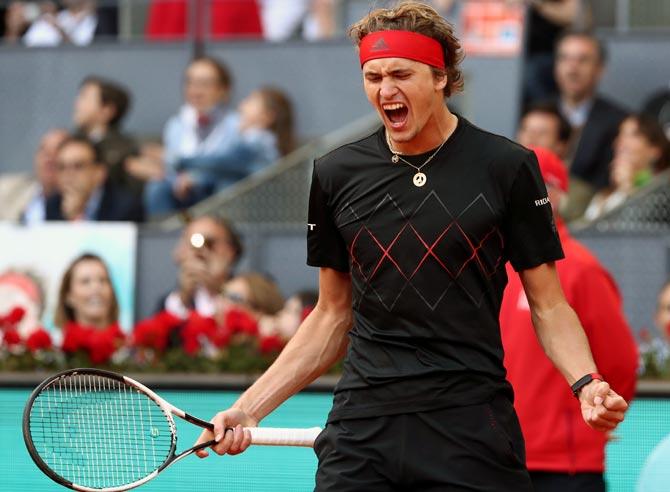 | « Back to article | Print this article |

The landscape at the top of men's tennis has remained virtually unchanged for more than a decade with Roger Federer, Rafael Nadal, Novak Djokovic and to a lesser extent Andy Murray and Stanislas Wawrinka snaffling the big prizes.
Change might be afoot though, according to American great John McEnroe, with a queue of young guns led by Germany's Alexander Zverev being tipped to make a long-overdue mark at the Australian Open in Melbourne starting on Monday.
"I believe this year will be the year that you are going to see one of these young kids break through," seven-time Grand Slam champion McEnroe, who will be working as analyst for Eurosport, said as excitement grows for the start of the tournament won last year by a 36-year-old Federer.
Despite all being written off as fading forces at various times in the past few years, last year's Grand Slams were shared out between Federer, Nadal and Djokovic -- all in their 30s.
When Djokovic won the US Open to move to 14 career Grand Slam titles, behind only Nadal (17) and Federer (20) on the all-time list, it meant the so-called "big three" had won 51 of the 62 Grand Slams since the 2003 Wimbledon championships.
Add in the three of Britain's Murray and three of Federer's fellow Swiss Wawrinka it does not leave much room for anyone else.
Croatian Marin Cilic won the 2014 US Open, the currently injured Juan Martin del Potro triumphed in New York in 2009 while Marat Safin (Australia 2005) and Gaston Gaudio (French 2004) are the only other major winners in that time.
There is a feeling, though, that a new block of fearless big-hitters, who have not suffered the battle scars sustained by the likes Kei Nishikori, Grigor Dimitrov and Cilic, are about to start writing a new chapter.
The 21-year-old Zverev, now ranked four in the world after winning the ATP Finals title in November, is the regarded as the man most likely to in Melbourne, even if he has reached only one Grand Slam quarter-final in 14 attempts.
Then there are Greek Stefanos Tsitsipas (ranked 15), Russian duo Karen Khachanov (11) and Daniil Medvedev (16), Croatia's Borna Coric (12) and Canada's Denis Shapovalov (27) -- all of whom are aged 22 or younger.
"The door is open, if you look at the rankings, you have a lot of players positioned to make a big breakthrough," McEnroe said. "I believe there will be a changing of the guard this year. Whether it's Zverev, or one of the others like Khachanov or Tsitsipas, you're going to see them do something big."
McEnroe knows that it would be foolish to dismiss the prospect of Djokovic, Federer or Nadal standing triumphant on Rod Laver Arena in a couple of weeks time having again defied the passing years to continue adding to their collections.
In addition, he says the game has become so physical that it is now much tougher for younger players to survive seven, best-of-five-set matches throughout a Grand Slam fortnight.
"Djokovic has had great success in Australia, he's won it six times, and the way he finished last year it's hard not to say it'll be him," McEnroe said. "Federer has positioned himself to have a good run. It's hard to pick."
"The game has become more physical and the ball has been struck faster -- it's just become more difficult for a young kid to be able to stand up to that for seven matches."
"It takes time to not only develop your skills but also develop your body."
"I think Zverev has the best team around him, he has dealt with the most amount of pressure compared with the other younger players," McEnroe added. "If he is able to make that next step, then he can win a major -- but it doesn't always work that way."
